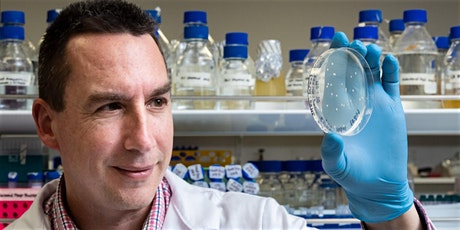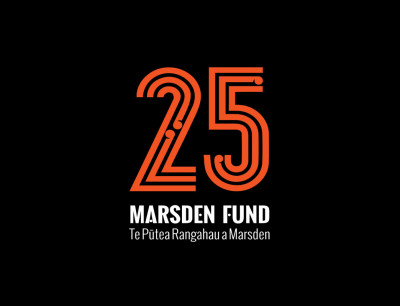Anticancer gene therapy:When good genes turn bad & bad turn good | Tauranga
Hear about leading New Zealand research to advance a new form of gene therapy that's exclusively targeting cancer cells.

Research led by Professor David Ackerley, director of Te Herenga Waka—Victoria University of Wellington’s Biotechnology programme, is helping to advance a new form of gene therapy that exclusively targets cancer cells.
A key goal of this therapy is a more targeted treatment that results in fewer side effects for cancer patients. To achieve this goal, David and his team have engineered enzymes that can transform a relatively safe and non-toxic compound (a “pro-drug”) into a drug that is highly toxic to cancer cells. The core idea is that genes encoding these enzymes can be delivered to cancer cells using viruses or bacteria that are only able to replicate in tumours.
Professor Ackerley’s team were early adopters of a technique called directed evolution, pioneered by Frances Arnold of CalTech, who received the Nobel Prize for Chemistry in 2018. “By mimicking evolution in the laboratory—that is, by introducing random mutations into the gene encoding our target enzyme, then selecting the tiny minority of variants where chance mutations have improved activity—we have been able to generate enzymes that more effectively activate a range of promising pro-drugs”, says David. Not only are the team’s artificially evolved enzymes significantly better at activating pro-drugs within living cells, a number of them also address another major problem—how to keep track of the microbes in patients to make sure they are only infecting cancerous cells.
“A unique aspect of our work is that our enzymes can also trap radioactive molecules called ‘positron emission tomography (PET) probes’,” says David. “We hope that this will allow a clinician to put a patient in a full body PET scanner to safely identify the regions where the microbes are replicating.”
David also teaches undergraduate Biotechnology at Te Herenga Waka—Victoria University of Wellington, where he aims to give his students a solid understanding of the pure and applied science underlying the biotechnology industry and to provide insight into the cultural and ethical values, and economic and political issues that this science must align with.

About the Marsden Fund 25 Series
Marsden Fund Te Pūtea Rangahau a Marsden was established by the New Zealand government in 1994. Since then, it has driven world-class research in New Zealand by supporting and incentivising excellent researchers to work on their best and boldest ideas, to connect internationally, leading to new knowledge and skills with the potential for significant downstream impact for Aotearoa.
To celebrate 25 years of Marsden Funding, this series pf regional lectures, online profiles and videos shines a light on 25 researchers to reflect on the depth and breadth of research excellence supported by this funding. Over coming months, there will be 15 regional lectures and 10 online profiles to explore #Marsden25.
SPEAKER
Professor David Ackerley
Te Herenga Waka—Victoria University of Wellington
ORGANISATION
Royal Society Te Apārangi
VENUE/DATE
Tauranga Yacht & Power Boat Club Inc 90 Keith Allen Drive, , Sulphur Point, Tauranga 3110
6:00pm Thu 23 January, 2020 - 7:00pm Thu 23 January, 2020
